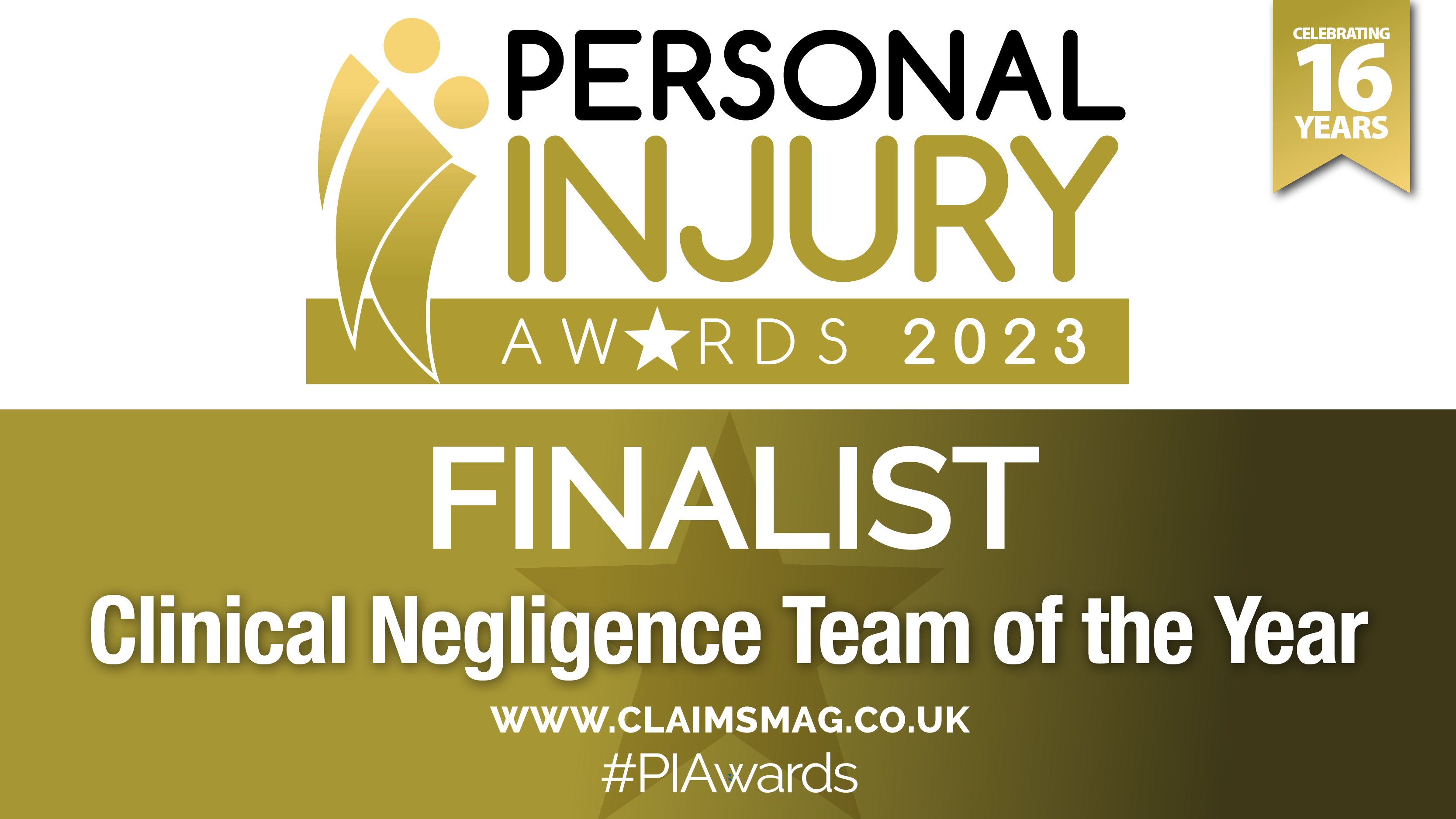Personal
Failure to Prevent Suicide Claims
We understand that you want answers as to why your loved one didn't receive the adequate care to prevent suicide. We are on hand to advise and support you throughout the compensation process.
SOLVING PERSONAL LEGAL MATTERS

Forbes Solicitors' failure to prevent suicide solicitors offer expert legal advice to individuals who have suffered as a result of a healthcare professional's failure to prevent suicide. Our experienced team can assist with a range of issues, including inadequate risk assessment, inadequate monitoring, and failure to refer to mental health services. We understand the impact that a failure to prevent suicide can have on individuals and work to achieve the best possible outcome.
What is Failure to Prevent Suicide?
Failure to prevent suicide refers to a failure by an organisation or individual to take appropriate measures to prevent a person who intends to take their own life (ideation).
Any suicide is a truly devastating tragedy that leaves behind a huge emotional trauma for those affected, and often many questions. In some cases, however, dealing with a loved one's suicide can be particularly difficult for the family and friends who are left behind if they believe that it could have been prevented with proper medical care.
Suicide is never a black and white issue, but there are some cases by which the victim displayed clear signs of distress in the presence of mental health professionals or was hospitalised due to suicidal thoughts. In cases like these, where the victim is under the care of mental health professionals or is known to be at risk of taking their own life, there should be no way for suicide to occur.
Medical professionals have a duty of care that requires them to take reasonable steps to prevent suicide wherever possible, and though sometimes this is not always possible, if you have lost a loved one due to substandard mental health care or negligence from a medical professional, you may wish to discuss your case with our team of expert clinical negligence solicitors, who can help you to make a suicide claim and give you advice and support through the inquest process.
At Forbes, our expert team of solicitors can provide legal advice and support for families dealing with the aftermath of preventable suicide where there is a:
- Failure to identify and react quickly to signs of distress or requests for help that lead to suicide
- Misdiagnosis of mental health illnesses that lead to suicide
- Failure to refer or make supervision arrangements for an individual that is considered 'at-risk' and prevent suicide
- Allowing an individual that is considered 'at-risk' access to materials that may harm them and lead to suicide
- Discharging 'at risk' individuals from hospital before the treatment is complete leading to suicide
- Failure to ensure appropriate treatment or medication that prevents suicide.
At Forbes solicitors, we know how much the suicide of a loved one can affect the families and friends, and our team of friendly solicitors are there for our clients at every step of the journey. We understand that you want answers as to why your loved one didn't receive the adequate care to prevent the suicide, and we are on hand to advise and support you throughout the process.
If you have lost a loved one to suicide and would like practical and emotional support, visit bagsforstrife.co.uk where you can find lots of useful resources and contact information to help you through this difficult time.
Recent Cases:
- A fatal claim, on behalf of a widower where 63 year old deceased committed suicide whilst at Leeds General Infirmary. He was admitted into hospital having stabbed himself 9 times. There was inadequate assessment of his mental health by the ALPS team and he was left in a room where he was able to lock the door. There was no adequate risk assessment. He died from asphyxiation after delays in resuscitation because the room was locked from the inside. A risk assessment must now include an assessment of the physical environment of the room space. Preventing access in the emergency situation that ensued. There was no admission or full assessment under the Mental Health Act despite the clear concerns voiceded by the family and escalating suicidal behaviour. A claim was brought by his wife for statutory bereavement and future loss of earnings, pension and care. The hospital provided an apology and implemented several changes after the tragic death.
-
The Claimant was significantly let down by Lancashire and South Cumbria NHS Foundation Trust when his wife committed suicide at aged 49. There were multiple concerns expressed about the mental state of the deceased. It was a breach of duty not to recognise the decline and provide an appropriate course of action within a reasonable timeframe. She should have been admitted to a psychiatric ward under a section of the Mental Health Act. As previous admissions had resulted in an improved mental state, it is likely that her mental state would have improved and she would not have taken her own life. The Claimant was not given the tools to help his wife and had to give up work to look after her. He lost his life partner and a claim was made for bereavement damages and for loss of earnings, pension (income) and services. An apology was received from the Trust and the Claimant was compensated to reflect the monetary loss in the sum of £225,000. The case was settled at a joint settlement meeting and without the need for trial.
Contact Us
Get in touch to see how our experts could help you.
Contacting Us
Monday to Friday:
09:00 to 17:00
Saturday and Sunday:
Closed
FAQs
What sort of mistakes can lead to a preventable suicide claim?
There might be a number of different mistakes that can sometimes be made by medical professionals that could potentially mean you could claim compensation for suicide that was preventable. These can include:
- Failing to correctly diagnose mental illness
- Failing to recognise that someone intends to take their own life
- Failing to recognise risk factors and put measures in place to prevent suicide
- Failing to react to signs of distress or requests of help from the patient
- Failing to put an adequate care plan in place or failing to refer or supervise the patient appropriately
- Failing to prevent the patient from accessing dangerous medications or objects
- Failing to discharge the patient correctly
If any of these failings resulted in the suicide of a loved one, you may be eligible to make a claim. Our experienced lawyers can help to determine if you have a case.
Who can make a claim if there has been a preventable suicide?
If you believe that your loved one died as a result of medical negligence because their suicide would have been prevented if they had received adequate support and treatment, it might be possible for a 'dependent' to make a claim on their behalf. A dependant can be:
- The husband, wife or civil partner of the deceased
- A child of the deceased
- A parent of the deceased
What can be included in a claim of compensation for suicide?
If you are a dependent of the deceased, some of the elements that may be considered in a compensation claim for failing to prevent suicide could include:
- Financial losses caused by the death of the deceased to the dependent, including things such as their loss of earnings or business or pension
- Funeral costs
- Any Pain and suffering the deceased experienced following the neglect until their death
- The statutory bereavement award, which can only be claimed by the spouse or civil partner of the deceased, or children of the deceased that were under the age of 18 at the time of the death.
Why choose Forbes as your suicide lawyers to make a claim?
At Forbes Solicitors, we have experience in helping families who have suffered a preventable suicide to claim compensation for what has happened. No amount of money can make up for what has occurred and the loss and grief felt, but the sense of justice gained and reassurance that processes have now been put in place to prevent this happening to anyone else can be a source of great comfort to successful claimants.
We support mental health and suicide charities.
Our team of suicide claim solicitors approach every case with sensitivity and professionalism, working hard to secure the best possible outcome from the situation and helping claimants at all stages of the process.
As experts in passing off claims, our team can provide the specialist support you need at every stage of the process. Call us on 0800 689 0831 for more information.
Need more help?
Get in touch to see how our experts could help you.

Video length: 16s
A tragic case of a Hospital Trust failing to prevent suicide and provide adequate care.
Our dedicated Clinical Negligence team

Contact Us
If you have a general enquiry then please fill in your details and someone will contact you.
Contacting Us
Monday to Friday: 09:00 to 17:00
Saturday and Sunday: Closed













